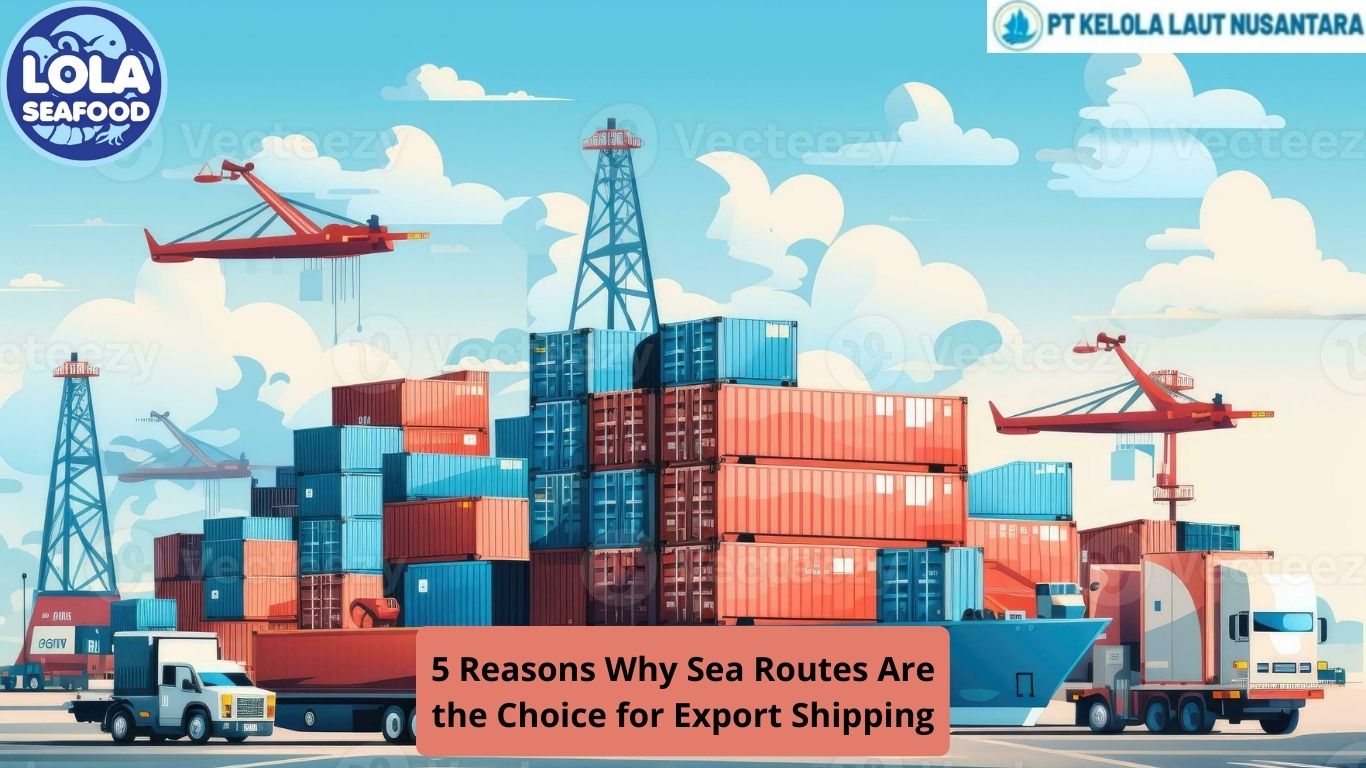5 Reasons Why Sea Routes Are the Choice for Export Shipping
By. Fajar - 14 Feb 2025
Kelolalaut.com In international trade, choosing the right mode of transportation is crucial for ensuring cost-effectiveness, efficiency, and reliability. While air and land transport have their advantages, sea routes remain the top choice for export shipping. Here are five key reasons why businesses worldwide prefer maritime transport for exporting goods.
1. Cost-Effectiveness
One of the biggest advantages of sea shipping is its cost-effectiveness, especially for bulk cargo. Compared to air transport, which is significantly more expensive per kilogram, sea freight offers lower rates due to the massive carrying capacity of cargo ships. Businesses exporting large quantities of goods—such as raw materials, automobiles, or manufactured products—benefit from economies of scale, reducing per-unit shipping costs. This makes sea transport ideal for exporters aiming to maximize profits while keeping logistics costs low.
2. Capacity for Large and Heavy Cargo
Unlike air transport, which has strict weight and size limitations, ships can carry enormous volumes of cargo, including oversized and heavy goods. Machinery, industrial equipment, vehicles, and raw materials like coal, steel, or oil can be efficiently transported via sea routes. Container ships, bulk carriers, and tankers are designed to handle a wide range of cargo types, making maritime transport the most practical option for businesses dealing in large-scale exports.
3. Global Reach and Accessibility
Sea transport provides access to nearly every country with a coastline, making it a truly global option for export shipping. With major ports in every continent, businesses can easily reach international markets, whether in Asia, Europe, Africa, or the Americas. Many inland locations are also connected to seaports through rivers and canals, further expanding the accessibility of goods transported by sea. This global reach ensures that exporters can efficiently deliver their products to customers worldwide.
4. Environmental Efficiency
Compared to air and road transport, sea freight has a lower carbon footprint per ton of cargo transported. Ships can carry thousands of containers in a single voyage, reducing fuel consumption per unit compared to trucks or planes. Advances in maritime technology, such as fuel-efficient engines and eco-friendly shipping practices, are further improving the sustainability of sea transport. As global trade moves toward greener logistics solutions, shipping by sea remains a preferred choice for environmentally conscious exporters.
5. Reliability and Safety
Maritime shipping is known for its reliability in handling and delivering goods safely. Modern cargo ships are equipped with advanced tracking systems, ensuring real-time monitoring of shipments. Additionally, strict international regulations, including the International Maritime Organization’s (IMO) safety standards, ensure secure transportation. With well-established shipping routes and predictable transit times, businesses can plan their exports efficiently and avoid unexpected delays. Sea routes remain the backbone of global trade, offering cost efficiency, high capacity, worldwide accessibility, eco-friendliness, and reliability. For businesses looking to export goods on a large scale, maritime transport is the most practical and strategic option. As international trade continues to expand, the role of sea shipping in export logistics will remain indispensable.
If youre interested in our Grouper Fillet Skinless, Grouper Black Dotted Whole Round, and Grouper Fillet Portion Cut please do not hesitate to contact us through email and/or whatsapp








